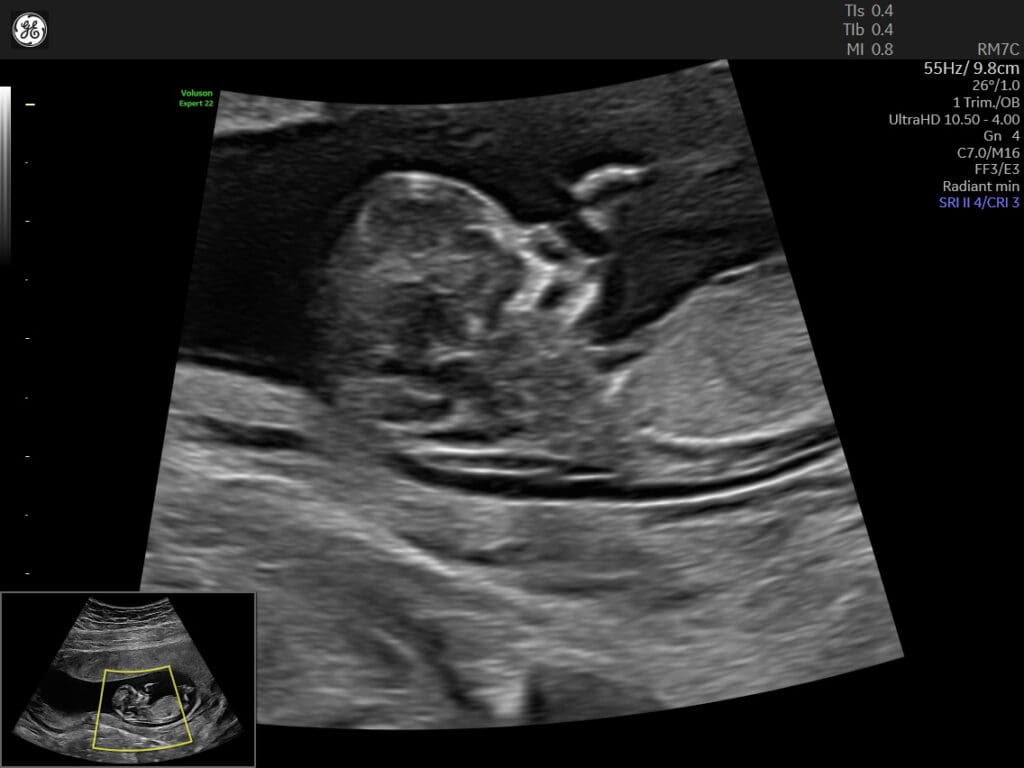What is the Nuchal Scan?
The nuchal translucency (NT) scan, also known as the nuchal translucency measurement, is a prenatal screening test that assesses the thickness of fluid at the back of the baby’s neck during the first trimester of pregnancy. It is typically performed between 11 and 14 weeks gestation.
The NT scan is performed through an ultrasound examination, where the technician measures the clear space, called the nuchal translucency, that is visible at the back of the baby’s neck. The measurement is usually done while the baby is in a specific position, allowing for accurate assessment.
The purpose of the NT scan is to assess the risk of chromosomal abnormalities, particularly Down syndrome (Trisomy 21) and other genetic conditions. An increased nuchal translucency measurement may indicate an elevated risk, while a normal measurement provides reassurance but does not rule out the possibility of chromosomal abnormalities.
It’s important to note that the NT scan is a screening test, not a diagnostic test. If the screening results suggest a higher risk, further diagnostic testing, such as chorionic villus sampling (CVS) or amniocentesis, may be recommended to confirm the presence or absence of a genetic condition.
The NT scan is a non-invasive and safe procedure that does not pose any risk to the mother or the baby. It provides valuable information to expectant parents, helping them make informed decisions regarding their pregnancy and potential further testing options.


